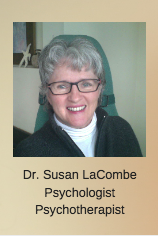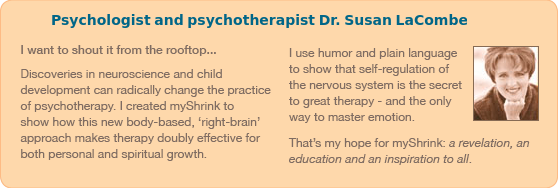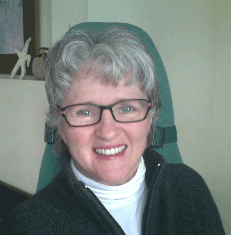Attunement in psychotherapy refers to the ability of your therapist to pick up on the nuances of your responses and to respond in a way that accurately captures the sense of how you were feeling in that moment.
You feel seen. You feel heard.
Even more than that, you feel as if your therapist experiences you.

Attunement is an essential characteristic that you want to find in your therapist. Without attunement you may find it hard to make the deeper changes you are looking for.
Your therapist's capacity for attunement or her ability to tap into where you are at and to respond in a way that best fits your needs in the moment is believed to be at the core of therapeutic change.
An "attuned therapist" senses the subtle changes in your emotional demeanour throughout the session. You might say, your therapist "gets" you.
I remember a client coming into my office and as she sat down her body relaxed into the couch as if she had been holding on all day. She asked me, "This feels so good. Could I stay here all day"? "Absolutely, you can stay here all day", I said. "For as long as you want" I added.
We were playing. Both of us knew that she could not stay beyond her appointed time but to say that would have ruined the moment. Not only that, such a comment would launch her into a left brain state, far away from the important emotional center.
A part of her needed to hear me say that she could have all the time she needed. I was talking to her right brain, not her logical left brain.
Later she reported that it felt so good to hear me say that and it shifted a small part of her as she took it in. (For another example of attunement see "The hardest thing about being a therapist".)
Our Need for Attunement Develops Early
Our need for attunement actually arises in infancy. The infant brain literally grows with attunement from others, moreso from the primary parent. Without sufficient attunement, our brain cannot develop optimally. We're left with emotional gaps that undermine our functioning as adults.
The problem is quite widespread as Dr. David Arredondo discussed in a presentation to a group of lawyers. It's neglect - not abuse - that is probably the more prevalent problem in our culture.
Quite miraculously however, the brain through plasticity can learn new ways of being. This is why attunement with your therapist is so important.
Tip for Counseling
There are two important aspects of attunement in counseling. One is your therapist's ability to attune to you and secondly your ability to be open to your therapist (to increase the odds that your therapist can sense what's happening for you).
When I sense my clients' being present it makes it easier for me to attune to them. When I am attuned to them, I can feel a bit of their pain, their shame or their joy.
When my client opens up as much as they can at that moment I know that we are accessing the right brain. In doing so, the chances for change are increased because much of our therapeutic work is often involved in making changes to our right brain.
Although I don't feel you can realistically make yourself be open to your therapist, I encourage you to take small calculated risks to be authentic and honest.
"Attunement" with other health practitioners
Attunement is an important quality you want with all your health practitioners. For example, imagine working with a bodyworker who you feel doesn't really "get" you. How safe will you feel when you're lying on the massage table?
The more "attuned" your practitioner, the more relaxed and safe you will feel and the easier it will be to make changes or adhere to a health regime that's being recommended.
related topics
10 Signs of a Wonky Therapist - it's the subtle signs that let you know your therapist is not attuned.
The Counseling Psych Cafe: A wonderful example of attunement and the repair of a missattunement as described by a member of the forum.
The hard part about being a therapist.
external resource
If you want to better understand the subtlety of attunement watch the film Buck. It chronicles the work of Buck Branaman made popular in the Horse Whisperer.
"Your horse is a window to your soul. Sometimes you might not like what you see...Sometimes you will." Buck Brannaman.

Readers Comments

Sara
Still angry and upset with my (ex) therapist
Hi, I went and saw a therapist for 6 months at uni and for the whole time I never felt that she understood me or got me and I felt that the things she was saying didn't really make sense. I didn't know how to say anything and I'd tried to be really open to what she was saying because I thought that maybe I just had it wrong and couldn't open up.
Things didn't really get better and I sent her an email about it, and at out next session she said that she didn't think that I needed to be in therapy anymore and that we should end the therapy because I should have started to feel better by now.
Its been about 3 months now and sometimes I still feel really angry towards her and upset, and I still have no idea about in what way she thinks I've gotten better. I'm not sure whether to make another appointment and go back, or if It will just make things worse, and whether she will even want to talk to me (it kind of felt like she didn't really want to talk to me anyway when i was having therapt).
Part of the problem in the sessions was that I felt so ashamed that I couldn't open up and talk about deep things, and sometimes it felt like I would even make myself go blank so I couldn't remember/ feel or bring up the real things i wanted to talk about, and no matter how hard i tried i couldn't get out of that state. I don't know whether the same thing will happen again if I try and talk to her, and whether going back would be a waste of time and make me feel worse. I'm also not sure if i am just afraid of something or being without therapy, because everytime I try and self reflect I just block everything out and stop myself from doing it ( I found even writing this was really hard!)
What do you think?
Sara (AUSTRALIA)

Sascha Payne
"Client-centered Therapy"
is client-centered therapy only for those who do not have any psychological issues? Such as bipolar disorder, schizophrenia, mental retardation, etc.? Conditions that would prevent them from communicating or expressing themselves rationally, so to say?
Sascha Payne (maryland, United States)

Shrinklady
Thanks for your post Sascha. By "client-centered therapy" I'm assuming you mean "attuned care". However, I would not make the assumption that being reflective in the Rogerian sense necessarily reflects attunement.
So, if you don't mind, I'll answer your question as if you meant "attuned therapy".
Over the years my work with these populations has been sparse. That being said, from my experience I would say attunement is even more important with folks suffering with these conditions.
It's my impression that these folks - as others who suffer from trauma - are extremely sensitive to non-verbal cues. Attuned care is an absolute necessity because it takes the non-verbal into consideration.
I suspect that these folks receive care that is far from attuned. Unfortunately, their caretakers tend to believe "no one is home" because they don't realize that the individual is often responding more to the non-verbal communications than to the verbal.
When one is suffering the effects of trauma, the non-verbal cues take on a greater importance. We've certainly seen this with developmentally challenged children who were later determined to have suffered from trauma.
Shrinklady

KS
Is this attunement?
On attunement, what you wrote about your client asking to stay with you all day... My therapist and I have been spending some time sitting on the floor, (physically) back to back and talking - which for some odd reason has been very beneficial for me.
The last time we sat there, back to back, I happened to say "I wish we could sit like this all day..." and her response was "That sounds really nice..." That is an example of attunement - correct?
KS (USA)

Shrinklady
Absolutely KS, that's an excellent example of attunement. It's wonderful isn't it. I could just imagine how that session was for you.
It's also great to hear that your therapist is willing to take some risks in her work with you. In my view, therapists - me included - are so afraid to cause harm, we err on the side of caution, missing all kinds of opportunities for connection and healing.
Thanks for sharing,
Shrinklady

Deirdre, Sommerset-West, South Africa
Took 18 months to trust my therapist
I have been on your site before, was diagnosed with conversion disorder and it took me almost two years to get my brain around the impact my childhood and other stress brought me to where i am today, only because of what i allowed.
I now know that i am so much more. It took me almost 18 months to put my trust in a fantastic therapist - i admire her for sticking it out with me and always being there for me as she allowed me to email her (my speech get very slur when i talk about my emotions) so sessions tend to go a bit slow.
I find your site so helpful and hope to be able to purchase your course material soon. Thank you so much for this fantastic site!

Shrinklady
Thanks for sharing Deidre. Good to hear your work is paying off.
All the best,
Shrinklady

Sharon, Florida, USA
In therapy on and off 30 years
I accidentaly came on this site and am happy I did. All this stuff hits home, especially the Mother and Child interaction in the first few years.
I have been in therapy on and off for 30 years and am just starting to really get it. I think my new medicine is working.
Thanks for the info.

Shrinklady
Yeah, I'm with you on that one Sharon. The mother/child interactions are key.
Shrinklady

Karie, Michigan, USA
Too far fetched?
The information you've shared on joy, anxiety, and depression ....and how an infant's nervous system is "grown" by interactions with the parent(s) is really mind-blowing!
Doesn't this mean that we now understand what allows joy and what causes depressions and anxiety disorders in adults all over the world?...that the stage is set for great mental health vs. not-so-great mental health in the first 2 or 3 years of a person's life?
Maybe the more society understands how important infant/caregiver interactions are.... the more adult mental health problems can be prevented from happening in the next generations?
Does that sound too far-fetched? This whole thing sounds revolutionary to me.

Shrinklady
You got that right Karie! It's amazing isn't it.
Even so, the whole idea is actually a hard sell. Most folks think noticing the positive is "mamby pamby". I recently received a "I wish to unsubscribe" note from a subscriber to my monthly myShrink UpDates. In that particular issue, I had emphasized the importance of up regulation and noticing the sounds and sensations that get evoked with the coming summer.
The reason the subscriber gave was: "too New Age for me". Which of course, just dumbfounded me. There is so much science built up around these concepts and my own clinical experience...well, I guess the ideas might need to be put into a different frame. And, I'm hoping to do just that in the coming months.
Thanks for your post and your support Karie.
Shrinklady
